UN Security Council
The Security Council reviewed Wednesday (Jan. 31) the ICJ provisional ruling on genocide allegations against Israel, as the deadly war in Gaza continues.
The executive body of the U.N convened at the request of Algeria to deliberate on the ruling issued by the International Court of Justice (ICJ) on Jan.26 concerning the provisional measures to be taken to prevent an Israeli genocide in the Gaza Strip.
“The United Nations and the international community have committed to ensure that no criminal escapes sanction and accountability,” Amar Bendjama, the ambassador and Permanent Representative of Algeria told the council.
He stressed that Israel, as the occupying Power, must immediately comply with the provisional measures agreed upon by the court."
In proceedings before the International Court of Justice (ICJ), South Africa alleged that Israel is responsible for violations of the Genocide Convention in respect of the in Gaza and the rhetoric of senior Israeli politicians.
"Following the court’s order, States are now on notice of the existence of a serious risk of genocide against the Palestinian people in Gaza, " South African Ambassador Mathu Joyini.
"They must, therefore, also act independently and immediately to prevent genocide by Israel and to ensure that they are not themselves in violation of the Genocide Convention, including by aiding or assisting in the commission of genocide. This necessarily imposes an obligation on all States to cease funding and facilitating Israel’s military actions, which are plausibly genocidal," she pleaded.
The Council is the United Nations' most powerful body, with "primary responsibility for the maintenance of international peace and security."
"Now, it is time for the Security Council to take further action to safeguard justice, save lives and achieve peace," China's Ambassador, Zhang Jun, said.
"It is clear that the spiral of violence in Gaza will continue until the "long-standing injustice" underlying the conflict has been eliminated and the Palestinian people can realize the right to create their own independent State," Russian Ambassador Vassily Nebenzia said.
The deputy permanent representative of Israel believed "the very attempt to level the accusation of genocide against Israel is a distortion of the Genocide Convention," he continued, noting that the same distortion is seen in the attempt to twist the provisional measures ordered by ICJ.
What now?
By signing the Charter, a Member State of the United Nations undertakes to comply with the decision of the Court in any case to which it is a party. However, the ICJ has no direct means of enforcing its decisions.
Ambassador Riyad Mansour of the Permanent Observer Mission of the State of Palestine to the UN strongly challenged to the Council members: "The court upheld its responsibility in its provisional measures. For these measures to be implemented, there has to be a ceasefire," he started.
"In [not] adopting a resolution to call for a ceasefire to allow the work and the provisional measures ordered by the court to be implemented, you are not assuming your responsibility," Mansour continued.
"When are you going to act accordingly? If you are serious about respecting your obligation of honouring the ruling of the court?"
"If you want to help Israel, adopt a ceasefire [resolution] so that it has no excuse not to implement the six provisional measures by the court," he said.
Riyad Mansour noted 13 Security Council members had voted for an immediate ceasefire and 153 Member States also supported the call at the General Assembly.
Addressing the Security Council, US Ambassador Linda Thomas-Greenfield said the ICJ’s provisional measures’ order is in line with her delegation’s belief that Israel has a right to defend itself, but how it does so matters, and all operations are bound to respect international humanitarian law.
“While we all agree that more must be done, we must be honest about what the court did not order,” namely a ceasefire, she said.
“We must instead work towards a solution” through diplomacy, she continued, emphasizing that the US has been working towards a release of the hostages in Gaza, with a proposal on the table that would change the situation on the ground, moving closer towards a cessation of hostilities, she said.
The United Nation Secretary-general briefed the top UN committee on Palestinian rights.
UN Emergency Relief Coordinator Martin Griffiths also addressed the council. He said fierce fighting was continuing around the hospitals in Khan Younis, threatening the wellbeing of thousands and driving thousands more south to Rafah.
Accusations have been levelled by Israel against a dozen of UNRWA workers.
They were allegedly involved in the deadly October 7 attack in Israel conducted by Hamas' military wing.
The accusations which have yet to be corroborated by the conclusions of a UN investigation have prompted countries such as the US or the UK to announce they cut funding to the largest UN agency still operating in war-torn Gaza.



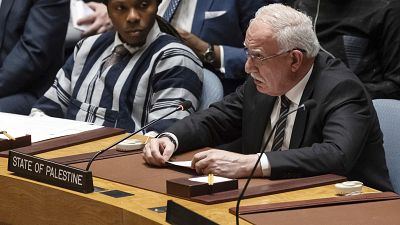

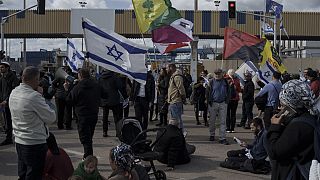
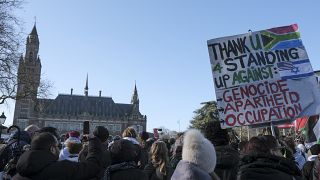
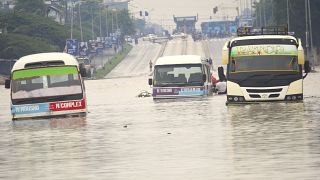

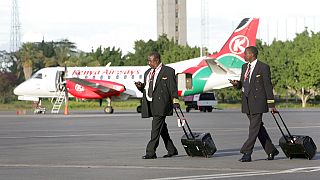
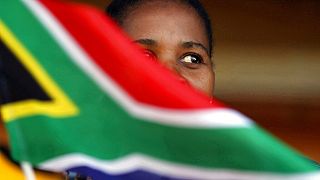
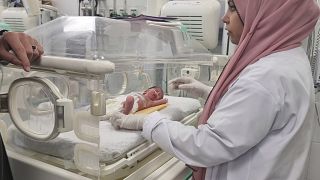
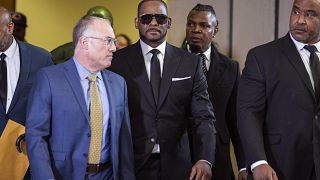
Go to video
Burkina Faso Suspends BBC and Voice of America
02:04
2024 New Orleans Jazz and Heritage Festival kicks off
01:13
Arab League deplores US veto denying Palestine full UN membership
01:01
Israel-Hamas war: Humanitarian aid parachuted into northern Gaza
01:01
Protests against U.S. military presence in Niger continue
01:28
Earth Day Org calls for 60% reduction in plastic production by 2040